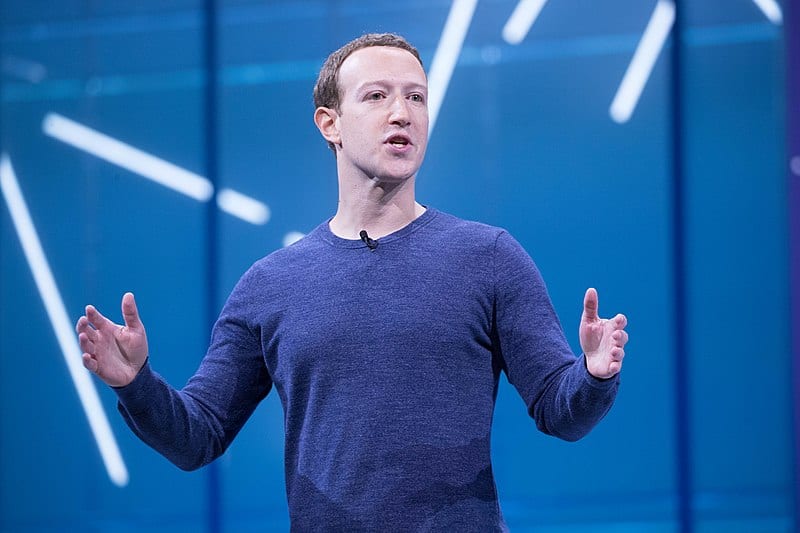Meta heads to court after failing to have FTC antitrust charges dismissed.
On November 13, U.S. District Judge James Boasberg denied Meta Platforms’ request to drop an antitrust case brought against it by the Federal Trade Commission (FTC) in December 2020. The suit was first dismissed in June 2021 after the judge held that the FTC failed to demonstrate that Meta maintained a dominant position in the world of social networking. An amended complaint was subsequently filed in August 2021. Meta tried unsuccessfully to dismiss the suit in January 2022, but the judge found far more evidence of a monopoly in the revised complaint. Per his lengthy opinion, “In the end, while the parties’ legal jousting is both impressive and comprehensive, it leaves no clear victor. This case must go to trial. Under the forgiving summary-judgment standard, the FTC has put forward evidence sufficient for a reasonable factfinder to rule in its favor.”
The FTC is seeking a permanent injunction and other equitable relief to remedy and prevent what the FTC refers to as Meta’s anticompetitive and unfair conduct in violation of Section 5(a) of the FTC Act, 15 U.S.C. § 45(a), and Section 2 of the Sherman Act, 15 U.S.C. § 2. Under both statutes, the government must demonstrate that the alleged anti-competitive actions were harmful to consumers and competition. Proving this is challenging in the rapidly evolving world of social media, however, where innovation is rampant and consumer preferences are constantly shifting. In this case, the FTC is claiming that Meta, “in an effort to preserve its monopoly in the provision of personal social networking,” identified popular social media companies such as WhatsApp and Instagram as competitive threats and bought them to stifle the risk. In fact, the FTC cited a 2008 email penned by Mark Zuckerberg which included the comment “it is better to buy than to compete.” According to the agency, when the two businesses were acquired by Facebook, they were growing quickly yet still relatively small, suggesting that Meta viewed them are future threats to its dominant market position.
Meta, in its motion for summary judgment, categorically denied wrongdoing and argued that the FTC failed to show that its acquisitions harmed consumers or competition. As Meta stated in a press release, “From the very beginning, the FTC has failed to state a plausible claim, and the agency has done nothing to build its case through the discovery process to prove otherwise … the Commission is wrongly continuing to assert that no deal is ever truly final, and businesses can be punished for innovating.”
Meta’s defense, in no small part, hinges on the definition of the relevant market, a key component of all antitrust cases, especially in the technology industry. In this particular case, the FTC is calling the relevant market “personal social network,” which includes platforms such as Instragram, Facebook, and WhatsApp. Meta is challenging this interpretation, however, arguing that it faces serious competition from a host of other platforms such as TikTok, X (formerly, Twitter), Apple’s iMessage, and YouTube. If the court agrees with Meta’s definition, it could seriously hinder the FTC’s case. Meta has put forth a cautiously optimistic front in the press. Per a spokesperson, “We are confident that the evidence at trial will show that the acquisitions of Instagram and WhatsApp have been good for competition and consumers.”

It will, no doubt, be challenging for the FTC to prove that consumers were harmed by Meta’s acquisitions, as courts generally look for direct economic harm in making their evaluation. Meta does not charge its users a fee, however, so there is no direct economic harm here. The FTC will have to convince the court that Meta’s actions nevertheless resulted in actionable harm to consumers, as the acquisitions reduced the number of independent operators in the social media space and consolidated Meta’s dominant power, thereby stifling innovation, lowering product quality, and limiting consumer choice. Meta’s control over such an enormous volume of user personal data, as the FTC is arguing, has provided it with a monopoly in targeted advertising and an opportunity to manipulate user behavior. The cumulative effects of Meta’s actions, per the FTC, have caused consumer harm warranting government intervention. Meta’s representatives, however, are claiming that to the contrary, the acquisitions have served to improve consumer welfare and competition by incorporating new technologies and features that benefit subscribers in a variety of ways.
A virtual status hearing will be held on November 25 to select a date for trial, which will most likely commence during Trump’s second term as President. This shift in leadership may or may not affect the outcome, as the FTC’s aggressive approach to antitrust regulation in recent years has generally been rejected by Republican lawmakers. In fact, Trump has hinted at taking a far less assertive approach in his second term, although it remains unclear how this would affect the FTC’s current case against Meta.
Meta is not the only big tech company answering to the FTC on allegations of anti-competitive behavior. For instance, in September 2023, the FTC filed a claim against e-commerce giant Amazon, alleging that it engaged in “anticompetitive and unfair strategies” to suppress price competition to maintain its enormous market share, among other things. In March 2024, the FTC filed suit against Apple for allegedly monopolizing the smartphone market. The agency already prevailed in an antitrust claim against Google in August 2024, holding that the search engine giant maintained an illegal monopoly over online searches by, among other things, using distribution contracts with third parties, such as wireless carriers and browser developers, to maintain its position as the default search engine. The FTC is currently suing Google again for allegedly monopolizing the ad exchange market (which matches buyers and sellers of ads).
Despite the FTC’s recent victory against Google, proving antitrust claims in the rapidly evolving technology industry, where businesses commonly innovate by buying smaller competitors, is extremely challenging. Courts must balance society’s need to encourage and support innovation with its need to prevent monopolistic practices from taking over and causing consumer harm. Tech-related antitrust cases have typically focused on monopolistic actions such as predatory pricing or the improper use of restrictive covenants, not the practice of acquiring companies to kill competition. This is far more recent. The outcome of this case could set new precedent with respect to how courts interpret antitrust law as applied to tech M&A activity. As the judge explained, “Recall that Meta and many of its competitors do not charge for use, preferring instead to capture advertising revenues. That makes this case an awkward fit with many of this nation’s antitrust precedents, which have confronted anticompetitive practices mostly in markets subject to more traditional price and output effects.”
The case is Federal Trade Commission v. Meta Platforms, Inc. (formerly referred to as Federal Trade Commission v. Facebook, Inc.), Case No.: 1:20-cv-03590. Meta is represented by law firms
Kellogg, Hansen, Todd, Figel & Frederick; Wilmer Cutler Pickering Hale and Dorr; Cravath, Swaine & Moore; and Davis Polk & Wardwell.


Join the conversation!